Home>Articles>How Long Can You Keep Meat In The Freezer After The Expiration Date


Articles
How Long Can You Keep Meat In The Freezer After The Expiration Date
Modified: February 16, 2024
Learn how long you can safely store meat in the freezer after its expiration date with our informative articles.
(Many of the links in this article redirect to a specific reviewed product. Your purchase of these products through affiliate links helps to generate commission for Storables.com, at no extra cost. Learn more)
Introduction
Welcome to the world of freezer storage! When it comes to preserving food, the freezer can be a lifesaver. It allows us to prolong the shelf life of perishable items, especially meat, and reduce food waste. However, many people are unsure about how long they can keep meat in the freezer, especially after the expiration date has passed.
Understanding the expiration date and knowing how to properly store meat in the freezer is essential for maintaining its quality and safety. In this article, we will explore the factors that affect meat storage in the freezer, guidelines for determining the appropriate storage time, and signs of freezer burn and spoilage. We will also provide tips for maximizing meat quality and safety, and discuss whether frozen meat can still be consumed after the expiration date.
By the end of this article, you’ll have a clear understanding of how long you can keep meat in the freezer after the expiration date, and how to ensure that it remains delicious and safe for consumption.
Key Takeaways:
- Properly stored frozen meat can often be consumed safely after the expiration date, as long as it shows no signs of spoilage. Trust your senses and judgment, and cook it thoroughly to enjoy preserved meat.
- Factors such as temperature control, proper packaging, and freezer burn prevention are crucial for maintaining the integrity of frozen meat. Adhering to recommended storage times and optimal conditions ensures freshness and safety.
Understanding the expiration date
In order to understand how long meat can be kept in the freezer after the expiration date, it’s important to grasp the concept of expiration dates and their role in meat products.
The expiration date is a date printed on the packaging of a food item that indicates the recommended time frame during which the item is at its peak quality. It serves as a guideline for consumers to determine when a product is likely to spoil or deteriorate. However, it’s crucial to note that expiration dates are more applicable to fresh, perishable foods, such as dairy products and vegetables, rather than frozen foods.
When it comes to meat products, the expiration date is often a “sell by” or “use by” date, which indicates the last date a retailer should sell the product or the last date a consumer should use it for best quality. These dates are determined by the manufacturer based on various factors, including the expected shelf life of the product and its handling and storage requirements.
It’s important to recognize that the expiration date is not an indication of food safety. It primarily serves as a recommendation for freshness and quality. While consuming a product beyond its expiration date may result in a decrease in quality, it does not necessarily mean that the food is unsafe to eat. In fact, frozen foods, including meat, can often be consumed safely even after the expiration date has passed, as long as they have been stored properly.
Now that we have a basic understanding of expiration dates, let’s delve into the factors that affect meat storage in the freezer and ultimately determine how long meat can be kept after the expiration date.
Factors affecting meat storage in the freezer
When it comes to storing meat in the freezer, there are several factors that play a crucial role in maintaining its quality and safety. Let’s explore three key factors: temperature control, proper packaging, and freezer burn prevention.
Temperature control: The temperature of your freezer is crucial in preserving the quality and safety of meat. The freezer should be set at or below 0°F (-18°C) to ensure the meat remains frozen. Fluctuations in temperature can lead to defrosting and refreezing, which can negatively impact the texture and taste of the meat. It’s important to regularly check and monitor the freezer temperature to ensure it remains consistent.
Proper packaging: Packaging plays a vital role in protecting meat from outside elements and preventing freezer burn. It is recommended to use airtight and moisture-resistant packaging, such as freezer bags, heavy-duty aluminum foil, or vacuum-sealed bags, to maintain the freshness of the meat. Proper packaging not only prevents freezer burn but also helps to retain moisture and prevents the meat from absorbing odors from other foods in the freezer.
Freezer burn prevention: Freezer burn occurs when the moisture in the meat evaporates, leading to dry and discolored patches on the surface. To prevent freezer burn, ensure that the packaging is tightly sealed to eliminate any air pockets. It is also helpful to remove as much air as possible from the packaging before sealing it. Additionally, organizing and arranging the meat in the freezer in a way that allows for proper air circulation can help prevent freezer burn.
By controlling the temperature, using proper packaging, and taking steps to prevent freezer burn, you can maximize the quality and shelf life of meat stored in the freezer. In the next section, we will discuss the recommended storage times for different types of meat and the importance of storage conditions for ensuring its freshness and safety.
How long can you keep meat in the freezer?
Now that we have covered the factors that affect meat storage in the freezer, let’s delve into how long different types of meat can be safely kept in the freezer. It’s important to note that these are general guidelines and may vary slightly depending on the specific type and quality of the meat.
Guidelines for different types of meat:
- Beef: Beef cuts, such as steaks and roasts, can be safely stored in the freezer for 6-12 months. Ground beef, on the other hand, should ideally be consumed within 3-4 months. Leaner cuts of beef tend to have a longer freezer life compared to fattier cuts.
- Pork: Pork cuts, including chops and roasts, can typically be stored in the freezer for 4-6 months. Ground pork is best consumed within 3-4 months. It’s important to note that cured or smoked pork products, such as bacon or ham, may have longer freezer life due to their preservation methods.
- Poultry: Whole chickens and turkeys can be kept in the freezer for up to a year. Chicken parts, such as breasts or legs, can be stored for 9-12 months, while ground poultry should be consumed within 3-4 months.
- Lamb and veal: Lamb and veal cuts, similar to beef, can be safely stored in the freezer for 6-12 months. Ground lamb and veal should be consumed within 3-4 months.
- Seafood: Fish and shellfish can be stored in the freezer for 3-6 months. It’s important to note that lean fish, such as cod or sole, have a shorter freezer life compared to fattier fish, like salmon or mackerel.
Importance of storage conditions:
In addition to following the recommended storage times, it is vital to pay attention to the storage conditions of the meat in the freezer. Keeping the temperature consistently at or below 0°F (-18°C) is crucial for maintaining the quality and safety of the meat. Fluctuations in temperature can lead to thawing and refreezing, which can negatively impact the texture and taste of the meat.
Furthermore, proper packaging, as discussed earlier, is also essential to protect the meat from freezer burn and maintain its freshness. Make sure to use airtight and moisture-resistant packaging to prevent moisture loss and the absorption of unwanted odors.
By adhering to the recommended storage times and ensuring optimal storage conditions, you can enjoy high-quality, safe meat even after an extended period in the freezer. In the next section, we will discuss how to identify signs of freezer burn and spoilage in meat.
Meat can be kept in the freezer for 3-12 months after the expiration date, depending on the type of meat. Always check for any signs of freezer burn or spoilage before consuming.
Signs of freezer burn and spoilage
When storing meat in the freezer, it’s important to be aware of the signs of freezer burn and spoilage. Freezer burn occurs when meat is improperly stored or exposed to air, resulting in the loss of moisture and the development of dry, discolored patches on the surface. Spoilage, on the other hand, refers to the decay or degradation of meat due to bacterial growth or exposure to unfavorable conditions.
Identifying freezer burn:
Freezer burn is characterized by the following signs:
- Dry, shriveled, or leathery areas on the surface of the meat
- Discoloration, typically white or grayish in appearance
- Loss of juiciness and tenderness
- Off or strange odor
If you notice these signs on the meat, it is likely that freezer burn has occurred. While freezer burn does not render the meat unsafe to eat, it can impact the texture and taste. Trimming off the affected areas before cooking can help improve the overall quality of the meat.
Detecting signs of spoilage:
Spoilage in meat can be identified through the following indicators:
- Foul or rancid odor
- Unusual color, such as green or yellow patches
- Slimy or sticky texture
- Mold or visible signs of microbial growth
If you come across any of these signs, it is best to discard the meat as it may pose a health risk if consumed.
It’s important to note that while freezer burn and spoilage can affect the quality and taste of the meat, they do not necessarily indicate that the meat is unsafe to eat. Proper storage and handling techniques, such as using appropriate packaging and maintaining optimal freezer conditions, can help minimize the risk of freezer burn and spoilage.
Now that we’ve covered the signs of freezer burn and spoilage, let’s explore some tips for maximizing the quality and safety of meat stored in the freezer.
Tips for maximizing meat quality and safety
To ensure that the meat you store in the freezer maintains its quality and safety, it’s important to follow some essential tips. These tips include proper labeling and rotation, understanding thawing and refreezing guidelines, and practicing safe handling techniques.
Proper labeling and rotation:
Labeling your meat packages with the date of freezing can help you keep track of their storage time. By implementing a “first in, first out” rotation system, you can ensure that older meat is used before newer ones, reducing the risk of keeping meat in the freezer for too long.
Thawing and refreezing guidelines:
When it comes to thawing meat, the best method is to place it in the refrigerator overnight. This allows for a slow and controlled thaw, reducing the risk of bacteria growth. Avoid thawing meat at room temperature, as it can lead to uneven thawing and potential spoilage.
It’s important to note that once meat is thawed, it should be cooked promptly and not refrozen, as refreezing can negatively impact its quality and safety. However, if you have cooked meat that was previously frozen and properly stored, it can be safely refrozen.
Safe handling practices:
Practicing safe handling techniques is key to maintaining the quality and safety of the meat. Follow these tips:
- Wash your hands thoroughly before and after handling raw meat to prevent cross-contamination.
- Use separate cutting boards and utensils for raw and cooked meat to avoid the spread of harmful bacteria.
- Cook meat to the appropriate internal temperature to ensure it is safe to consume. Refer to a reliable food safety guide for specific temperature recommendations.
- Refrigerate or freeze leftover cooked meat within two hours of cooking to prevent bacterial growth.
By following these tips, you can ensure that the meat stored in your freezer remains of high quality and safe to consume.
Now, let’s address a common question: Can frozen meat still be consumed after the expiration date?
Can frozen meat be consumed after the expiration date?
One of the common concerns regarding frozen meat is whether it can still be consumed after the expiration date has passed. The answer is, it depends.
Evaluating the quality and safety of frozen meat:
While the expiration date on the packaging provides a guideline for freshness and quality, frozen meat can often be consumed safely even after the expiration date. However, it’s essential to evaluate the quality and safety of the meat before consuming it.
Start by inspecting the meat for any signs of freezer burn or spoilage, as discussed earlier. If the meat shows no signs of deterioration and has been stored properly, it is likely safe to consume. However, if you notice any unusual odors, colors, textures, or signs of microbial growth, it is best to discard the meat to avoid any potential health risks.
Recommendations for consuming expired frozen meat:
If the frozen meat has passed its expiration date but appears to be in good condition, there are a few additional recommendations to consider:
- Use your judgment: Trust your senses and judgment when evaluating the quality of the meat. If it looks and smells fine, it is typically safe to consume.
- Cook it thoroughly: When preparing expired frozen meat, it is crucial to cook it thoroughly to eliminate any potential bacteria that may have developed. Cooking meat to the appropriate internal temperature will help ensure its safety.
- Consider taste and texture changes: Keep in mind that expired frozen meat may experience slight changes in taste and texture. It might not be as tender or flavorful as fresh meat, but as long as it meets safety standards, it can still be enjoyed.
It’s worth noting that the recommendation for consuming expired frozen meat is based on the assumption that the meat has been stored properly and maintained at a consistent temperature below 0°F (-18°C) throughout its time in the freezer.
However, it’s always best to follow the guidance provided by the manufacturer and exercise caution when consuming expired frozen meat. If you have any doubts about the quality or safety of the meat, it is safer to err on the side of caution and discard it.
Now that we’ve covered the topic of consuming expired frozen meat, let’s summarize the key points discussed in this article.
Conclusion
Properly storing meat in the freezer is essential for preserving its quality and safety. While the expiration date on meat products serves as a guideline for freshness, frozen meat can often be consumed safely even after the expiration date has passed. By following the guidelines and tips discussed in this article, you can maximize the quality and shelf life of meat stored in the freezer.
Factors such as temperature control, proper packaging, and freezer burn prevention are crucial for maintaining the integrity of the meat. Understanding the recommended storage times for different types of meat and adhering to optimal storage conditions helps ensure its freshness and safety. Additionally, being able to identify signs of freezer burn and spoilage allows you to take necessary steps to preserve the quality of the meat and avoid any potential health risks.
Proper labeling and rotation of frozen meat, along with following the guidelines for thawing and refreezing, are key practices for maintaining meat quality and safety. Safe handling techniques, such as practicing good hygiene, using separate utensils for raw and cooked meat, and cooking meat to the appropriate temperature, further contribute to the overall safety of frozen meat consumption.
When it comes to consuming expired frozen meat, it is important to evaluate its quality and safety before making a decision. Trusting your senses and judgment, cooking the meat thoroughly, and considering any taste and texture changes are essential. However, if there are any signs of spoilage or concerns about the quality, it is best to discard the meat to avoid potential health risks.
Ultimately, by understanding the expiration date, following proper storage practices, and being mindful of quality and safety considerations, you can confidently enjoy the convenience and benefits of storing meat in the freezer for an extended period of time.
So go ahead, stock up your freezer with confidence, and savor the deliciousness of well-preserved meat whenever you desire!
Frequently Asked Questions about How Long Can You Keep Meat In The Freezer After The Expiration Date
Was this page helpful?
At Storables.com, we guarantee accurate and reliable information. Our content, validated by Expert Board Contributors, is crafted following stringent Editorial Policies. We're committed to providing you with well-researched, expert-backed insights for all your informational needs.

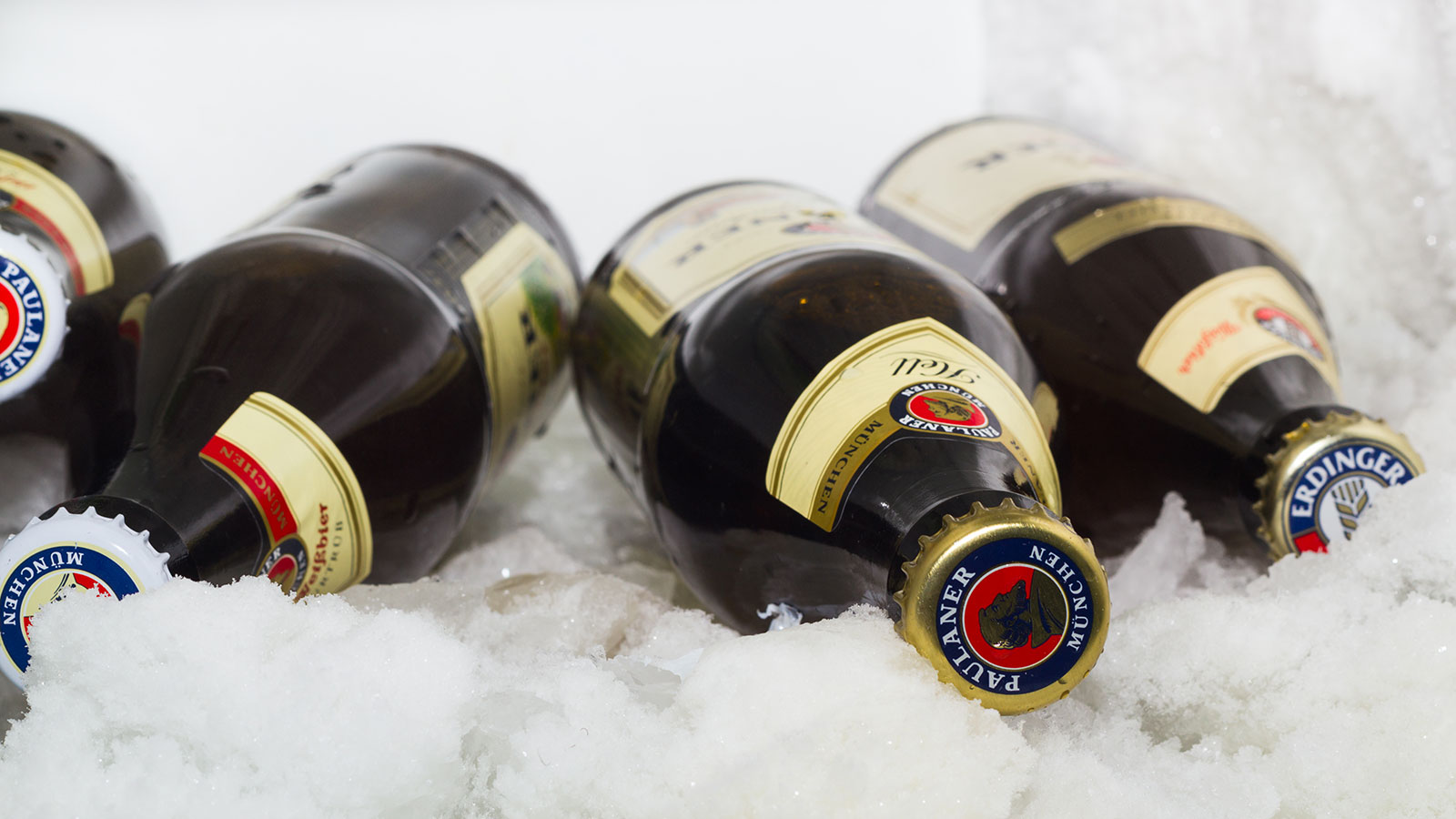
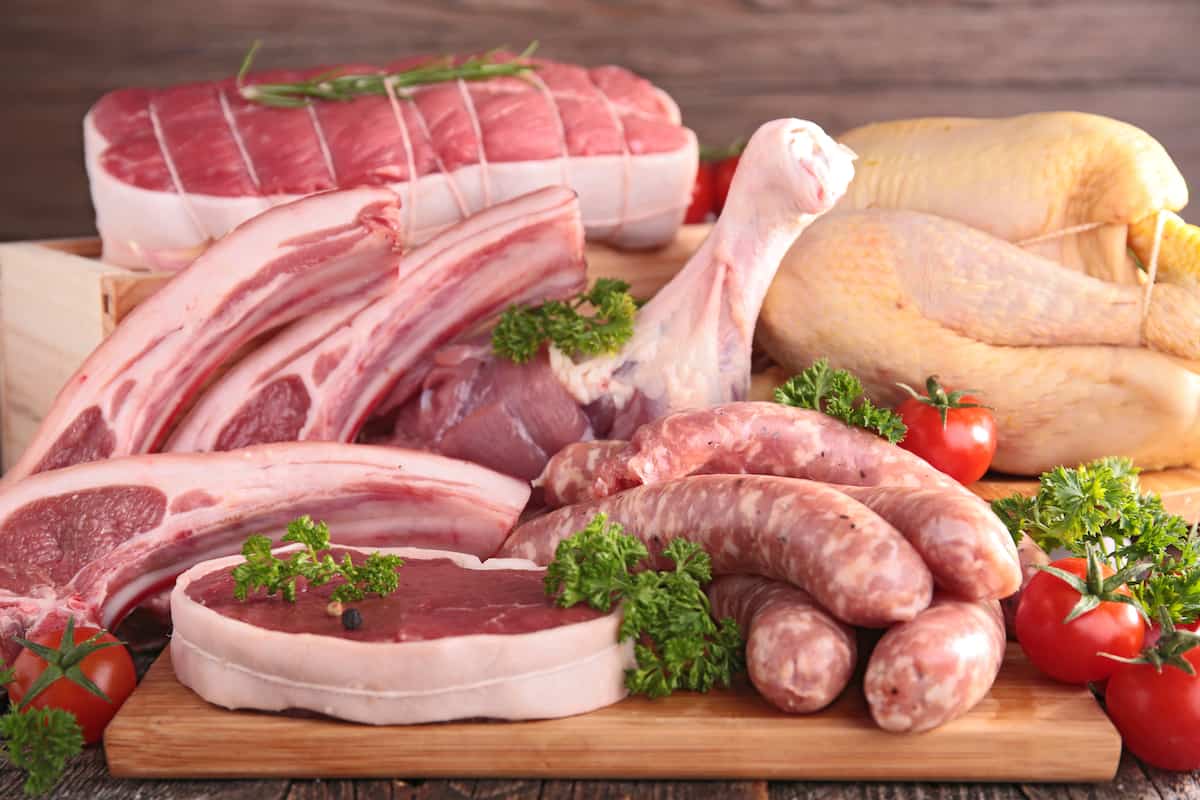

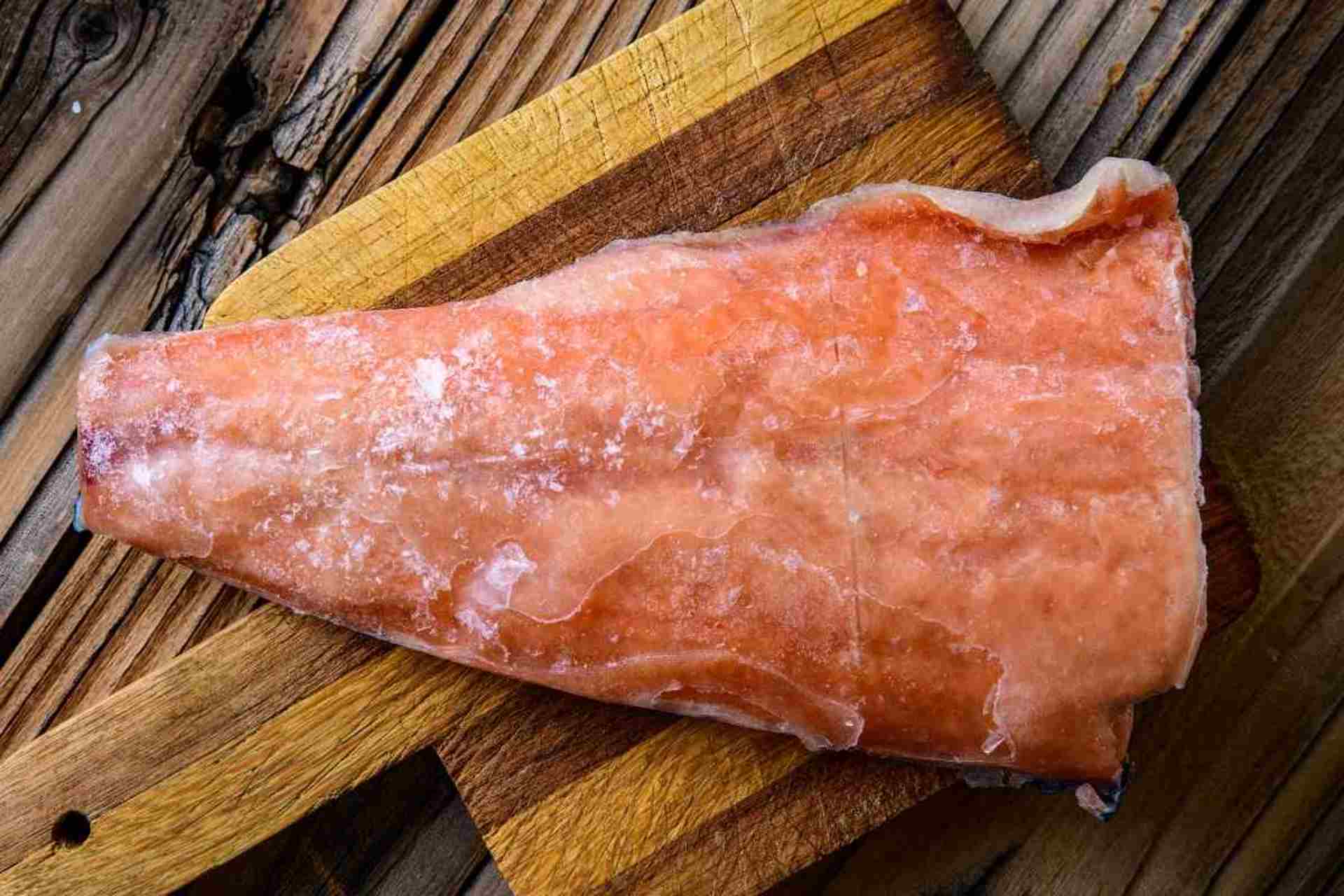

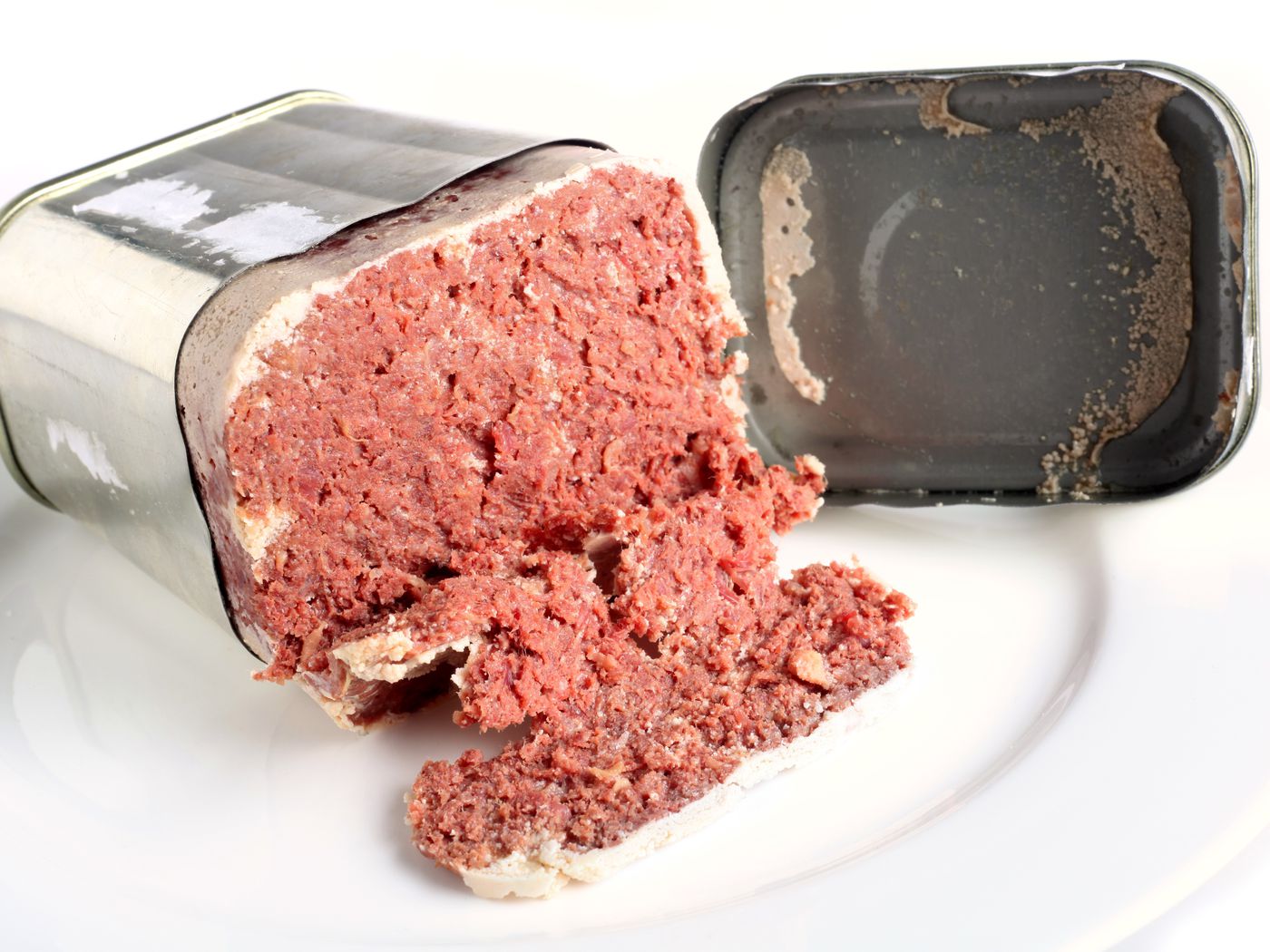

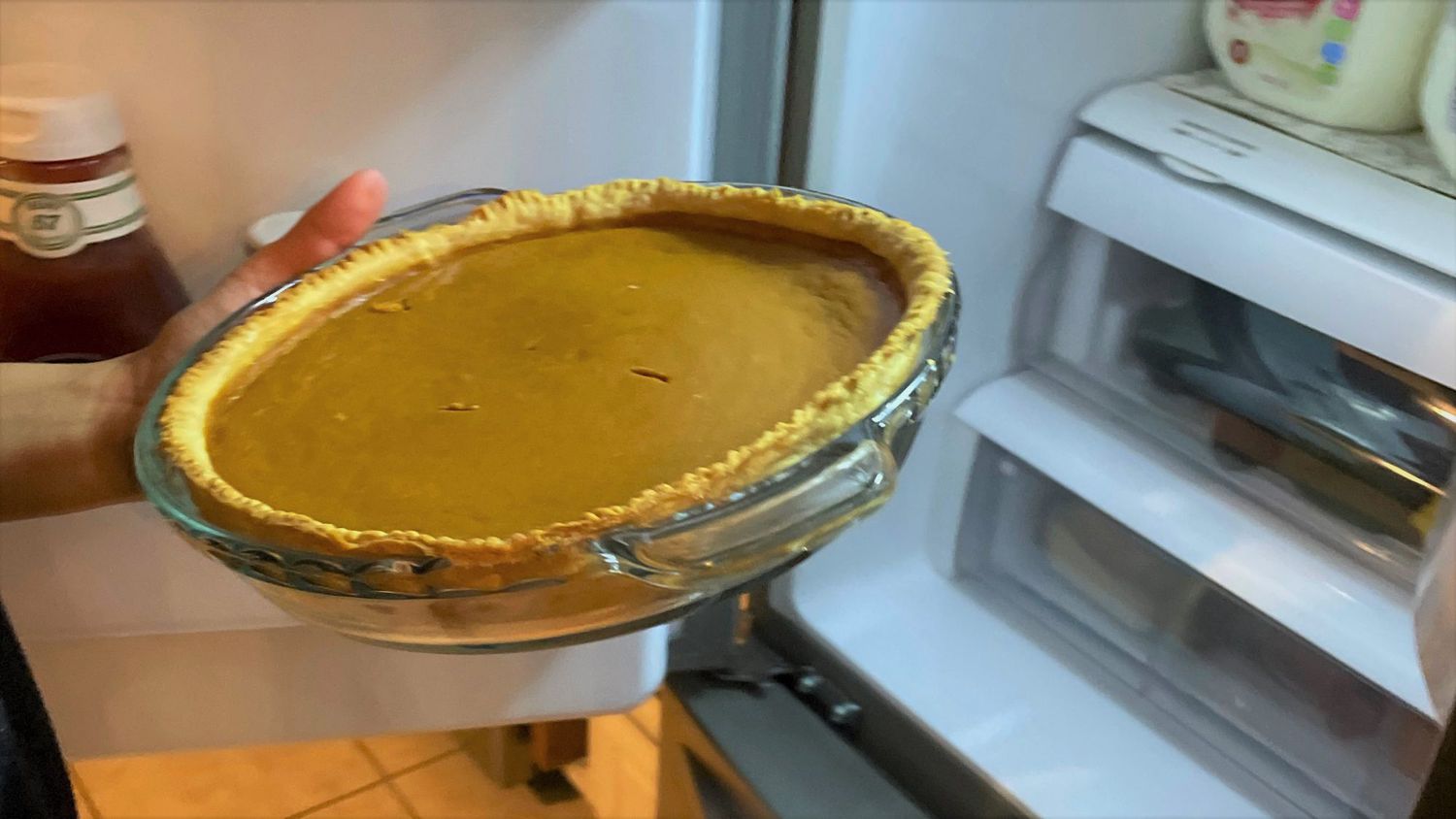






0 thoughts on “How Long Can You Keep Meat In The Freezer After The Expiration Date”